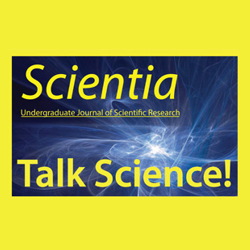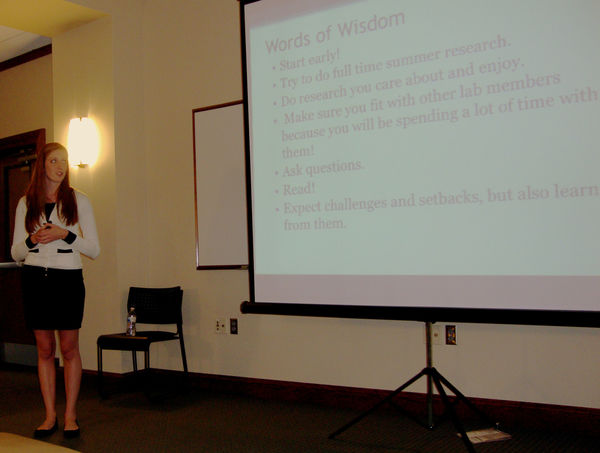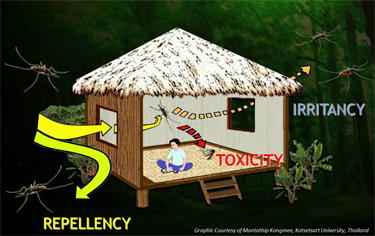

Elizabeth Nuter
The students from Scientia, the undergraduate journal of scientific research, host a monthly seminar series called Talk Science that highlights the work of undergraduate and faculty researchers in the College of Science. This month’s presenters were senior biochemistry major Elizabeth Nuter and Nicole Achee, associate research professor of biological sciences.
Nuter’s presentation, “Biophysics of Immune Recognition: Flexibility of the Major Histocompatibility Complex (MHC),” showcased the research she works on in the lab of Brian Baker, professor of chemistry and biochemistry. Baker’s lab seeks to elucidate methods and mechanisms of T-cell receptor (TCR) recognition, cross reactivity and polymorphism, peptide-MHC binding, strong immune responses, and pMHC dynamics and flexibility. Nuter’s research on the human leukocyte antigen (HLA), a MHC, identified previously unknown mechanisms of immune recognition. The results of the her work were published in July 2013 in the Journal of Biological Chemistry in a paper titled, "Peptide modulation of class I major histocompatibility complex protein molecular flexibility and the implications for immune recognition." Her current research project now focuses on peptide dependent flexibility of Ld, a mouse MHC protein.
Although Nuter has experienced difficulties throughout her current research project, she advises her fellow undergraduates to “expect challenges and setbacks, but also learn from them.”

Concept of spatial repellency.
Graphic courtesy of Montathip Kongmee,
Katsetsart University, Thailand
Achee’s research presentation was called, “Mosquitos, Politics, and Coconut Shells: Forging a Paradigm Shift for Vector Control.” Achee opened her presentation with a focus on the number of human diseases transmitted by mosquitos and the danger they pose in certain regions of the world. Achee’s research involves developing new tools to combat these diseases. Through these tools, Achee has been exploring how lower doses of chemicals being used on these insects can in fact elicit spatial repellency.
Achee explained how the repellency effect hasn’t been appreciated as it was in the past. Through a consortium of organizations, she and her colleagues have brought this topic back on the radar, and in partnership with the World Health Organization, have developed a guideline for efficacy testing of spatial repellents to be used by industry and research groups for discovery of novel chemicals with repellency characteristics.
Achee’s collaborative projects have taken her to Peru and Thailand to evaluate how spatial repellents function, and have included travel to Sumba Island, Indonesia to demonstrate the public health benefit of spatial repellent product . Both projects were funded by the Bill and Melinda Gates Foundation. She will travel to the Amazon and Africa starting next year for additional spatial repellent research.
Talk Science provides a fun, informal, and stimulating environment for all undergraduates to keep up with research from the College of Science. All undergraduates are invited to Scientia’s next Talk Science event on November 14 at 7 p.m. in the Jordan Hall of Science Reading Room.